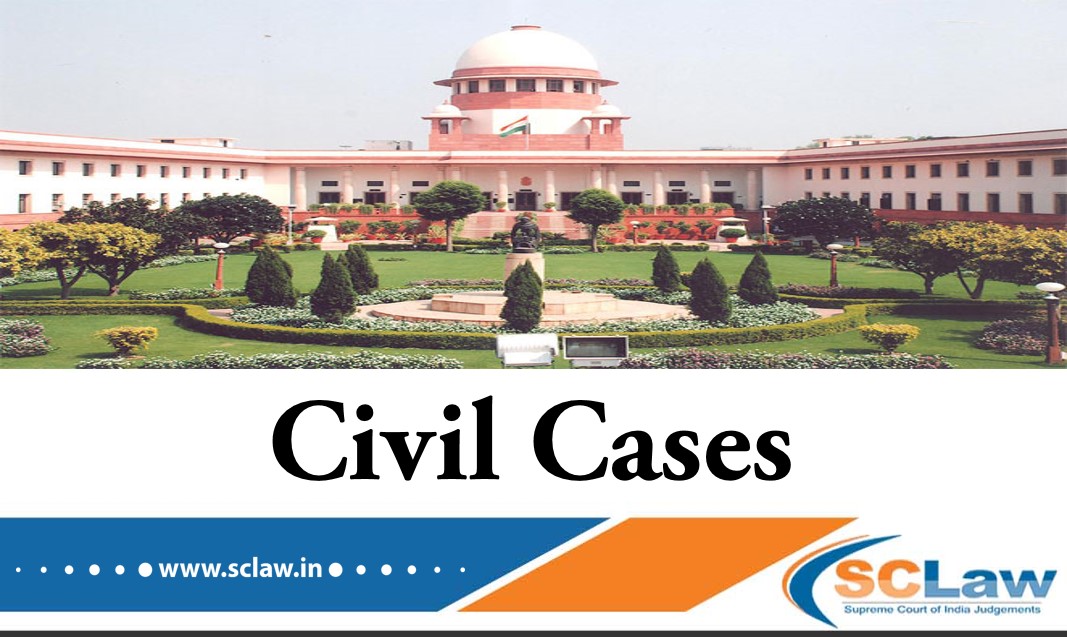Maharashtra Employees of Private School (Conditions of Service) Regulation Act, 1977 – Section – 9, 2(21) – Termination of the services – The Appellant filed an application challenging the termination before the Labour Court.
(2006) 9 SCC 782 SUPREME COURT OF INDIA DAGDU — Appellant Vs. PRESIDENT, ANANDRAO NAIK S.P. MANDAL AND OTHERS — Respondent ( Before : Ruma Pal, J; Dalveer Bhandari,…
There was a delay of three days in lodging the FIR and the fact that the doctor who examined the victim, in her testimony has deposed that she did not find any confirmatory evidence of rape on the victim
(2006) 9 SCC 589 SUPREME COURT OF INDIA RAJ KUMAR ALIAS RAJU YADAV ALIAS RAJ KUMAR YADAV — Appellant Vs. STATE OF BIHAR — Respondent ( Before : Tarun…
State filed an appeal for enhancement of the sentence. The accused attempted to argue before the High Court that he was entitled to be acquitted. Such argument was not permitted to be advanced
(2006) 6 SCC 429 SUPREME COURT OF INDIA ARUN BALKRISHNA NIRMAL AND OTHERS — Appellant Vs. STATE OF MAHARASHTRA — Respondent ( Before : Tarun Chatterjee, J; B.N. Srikrishna,…
Accused have entered into a compromise with the persons injured in the occurrence out of which this appeal arises.
(1982) 3 SCC 371 SUPREME COURT OF INDIA MALKIAT SINGH AND ANOTHER — Appellant Vs. STATE OF PUNJAB AND OTHERS — Respondent ( Before : Baharul Islam, J; A.…
Evidence Act, 1872 — Section 115 — Estoppel by conduct
AIR 1991 SC 1320 : (1993) 3 JT 692 : (1991) 2 SCC 419 Supp SUPREME COURT OF INDIA KRISHI UPAJ MANDI SAMITI — Appellant Vs. ASHOK SINGHAL AND…
Penal Code, 1860 (IPC) – Section 300 – Interested witness – Presence at scene of occurrence
(2001) CriLJ 3299 : (2001) 3 JT 551 : (2002) 9 SCC 576 SUPREME COURT OF INDIA CHAVDA JIVANJI CHELAJI AND OTHERS — Appellant Vs. STATE OF GUJARAT — Respondent…
Appeal – Proper parties – Impleadment of Judges of High Court – The Bar Council and the Advocate General of the State should be issued the notices of appeal – Impleadment of Judges of High Court as respondents in appeal, is improper.
AIR 1955 SC 223 : AIR 1954 SC 223 : (1955) 1 SCR 1055 SUPREME COURT OF INDIA BHATARAJU NAGESHWARA RAO — Appellant Vs. THE HON’BLE JUDGES OF THE…
Bar Councils Act, 1926 – Sections 11 and 12 – Constitution of Tribunal – Biased member – Effect of – Distinction between pecuniary interest and personal prejudice
AIR 1957 SC 425 : (1957) 1 SCR 575 SUPREME COURT OF INDIA MANAK LAL — Appellant Vs. DR. PREM CHAND — Respondent ( Before : T. L. Venkatarama…
Electricity (Supply) Act, 1948 – Section 57 – Arbitration of dispute – Reference to arbitration – Such clause even if presumed to be a statutory contract cannot bind a person not party to contract.
AIR 1959 SC 711 : (1959) 2 SCR 213 Supp SUPREME COURT OF INDIA THE AMALGAMATED ELECTRICITY CO. LTD. — Appellant Vs. N.S. BATHENA — Respondent ( Before :…
Arbitration Act, 1940 – Sections 19 and 16 (3) – Supersession of reference – Effect of application – Mere filing of an application cannot affect award already made before that date and filing the application.
AIR 1962 SC 671 : (1962) 1 SCR 784 SUPREME COURT OF INDIA B. SUBBARAMA NAIDU — Appellant Vs. B. SIDDAMMA NAIDU AND OTHERS — Respondent ( Before :…













